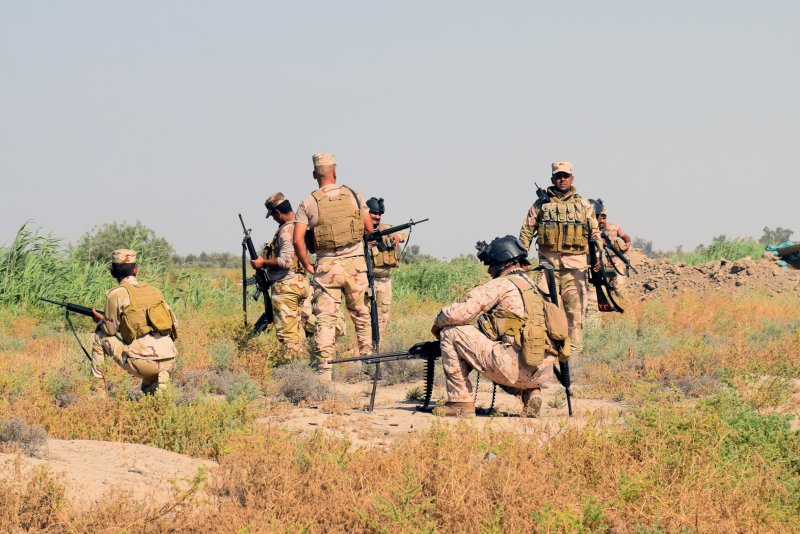As Iraqi forces try to clear out militants from an oil route to Iran, the Iranian government said gas shipments to Basra could be next. File photo by Nawras Aamer/EPA
Feb. 7 (UPI) -- With Iraqi security forces clearing potential oil transit routes, the Iranian government said next on the trade list with its neighbor is liquefied natural gas.
Aside from crude oil, Iran, one of the leading producers in the Organization of Petroleum Exporting Countries, has some of the largest deposits of natural gas in the world. Its South Pars field, which it shares with Qatar, is among the biggest in the world.
Iranian Energy Minister Bijan Zangeneh said Iran is already sending piped natural gas to Iraq. Beginning in the next Iranian calendar year, which starts March 21, the official Islamic Republic News Agency reported that exports of liquefied natural gas could start arriving in the Iraqi port city of Basra.
The International Energy Agency estimates LNG, which has more maneuverability than piped gas, accounts for about 90 percent of the growth in long distance gas trade over the next 20 years. Barring new routes linking Russia to China, LNG is emerging as the option of choice.
As the LNG market expands, the IEA estimates it could take about 10 days for major importers to up their take by 10 percent, about a week less than today's average delivery time.
Iran has long tried to get more of its gas into the open market, holding it out as a possible option for diversification for a European energy sector that depends heavily on Russia for its natural gas.
Elsewhere, Iranian broadcaster Press TV reports the Iraqi military has started large-scale operations along the shared border to clear out militants from the so-called Islamic State terror group as a liberalization campaign that gained ground late last year continues.
The Iraqi operation is aimed at opening up a route for a planned oil corridor from northern Iraq into Iran.
Iranian energy options have improved since sanctions pressures were eased as a result of a U.N.-backed nuclear agreement. U.S. President Donald Trump on Jan. 12 issued a waiver on oil-related sanctions as part of the nuclear agreement, formally the Joint Comprehensive Plan of Action. He hinted it could be the last time, however, if it isn't amended.
Speaking in late January, Valiollah Nanvakenari, a parliamentary member of Iran's National Security and Foreign Policy Commission, said the agreement is not up for review.















